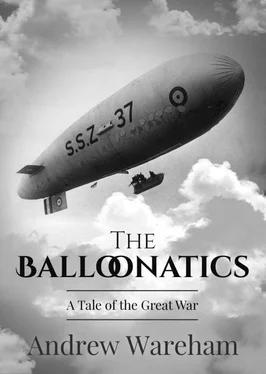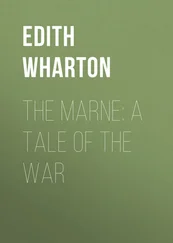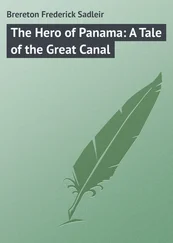“So… Ten days from today we will be on our own, sir.”
“Fewer if possible, Tubbs. Free as a bird and making your own decisions as circumstances demand.”
“Very good, sir.”
“So it will be. We will be running our own show, to a great extent. Buccaneers, you might say.” They turned blank faces to him. “You know about buccaneers, don’t you?”
Bracegirdle dropped into a poor imitation of a Cockney accent. “Yes, sir, they’re them fings either side yer buckin’ ‘ead.”
Peter had not heard that one before, was betrayed into a laugh, which was possibly not good for discipline.
The morning dawned bright and Peter was early to breakfast, looking forward to the independence the day would bring.
He spoke to the Chief Petty Officer on the field and arranged to fly for eight o’clock.
“Time to check with Polegate, sir. Make sure they’ve got a ground party ready.”
Peter took to the telephone. A juvenile voice answered.
“Midshipman Norris speaking.”
“Lieutenant Naseby here. OIC Flying at Polegate and piloting SS9. Are you ready for us to come in this morning?”
“I’m the only officer here, sir. The rest are due soon. I have two Chief Petty Officers and eighty men, sir. The Chiefs are organising them. There is a working set of kitchens, sir, and the wardroom is staffed.”
“What more can we ask for then? Inform the Chief in charge of flying that I shall come in sometime before nine o’clock.”
“Aye aye, sir.”
Peter hoped the boy was running for the nearest Chief rather than trying to take charge himself.
“Mr Tubbs! Go as front man to SS9, please.”
Tubbs ran.
“Mr Bracegirdle. Come across this morning when you can find transport. Talk to the Commander and organise yourself. Have a word with Mr Finlay about wardroom supplies.”
“Right, sir. That should be no problem. The Paymaster should have an eye to that sort of thing. He did with the Brigade.”
“Use your own discretion, Bracegirdle. Just don’t leave us thirsty.”
“A fate worse than death, sir.”
Peter laughed and left Bracegirdle to it. Six months in the trenches had left him far harder, more mature than the ordinary run of sublieutenant; he would make a good pilot, well able to take his own decisions. He turned to Tubbs, returned fully dressed, a rather different sort of officer.
“You know your Morse, Tubbs?”
“Yes, sir. Not as fast as a Yeoman of the Signals, sir, but competent.”
“Good. That’s all we need. You know what to do?”
“Yes, sir. I have been told what to do. Unwind the aerial, without tripping over it. Make the first signal. On patrol, another routine signal every hour. Signal coming in. Listen to the engine, sir. Be ready to change oily plugs if we stop and come down on the water. Don’t know how we restart the engine, sir, in that case.”
“We don’t, Tubbs. That was a legpull. You might be able to restart if we are on land. Really, you can’t expect to restart at all. Your job is running repairs – wrapping a bit of tape around an oil or petrol line, maybe.”
“Right, sir. I thought they might be laughing at me. Lot of people do, sir.”
“Up to you to show you are no joke, Tubbs. Other than that, what do you do?”
“Keep a lookout, sir.”
“That’s the most important thing. See the submarines first.”
Peter felt a fraud, playing the old hand, telling the new boys what to do and pretending to be on top of the job. It was part of command, the sole aim of all his long training – when given the job, do it confidently first, competently second. It was more important to give clear orders than to ensure that those orders made sense. Whatever else, never display doubt to the lesser mortals – one had been given command because one was capable of leading one’s juniors. Never let them have reason to suppose that one was unsure of oneself – even, perhaps especially, when one had very little of idea of what one was doing.
He smiled at Tubbs, nodded to him – he knew the youngster could do the job.
Tubbs wondered about that – he had never made a wholehearted success of anything he had tried since leaving Dartmouth. If his new officer believed he could do it, he would try his very best. He had memorised his Morse; that was no difficulty. He would learn the engine. He would watch his sector unflaggingly. Above all, he would not let down the officer who treated him as a competent man, not a fumbling boy.
They flew the few miles to Polegate and landed without problems, the ground party catching the rope and hauling them in without difficulty. Peter spotted a little boy in a large hat stood to the side of the field, next to a vast Chief Petty Officer with a hand-held megaphone, roaring out his orders.
The CPO stood well over six feet, carried a respectable beer belly and sported twenty years worth of black beard across chin and chest. He was, intentionally, an overpowering figure.
The midshipman was a very little boy in comparison, though likely of about sixteen and moderately well-grown.
“I suspect that is Midshipman Norris, Tubbs. Officer in command until I relieve him.”
“Much relieved he will be, I suspect, sir.”
Norris took the lead and offered a salute which Peter could not return.
“Thank you, Mr Norris. I will take over now.”
“Thank you, sir.”
There was a silence until the Chief tapped Norris’ shoulder and pointed to himself.
“Oh. Yes, sir. Sorry. This is Chief Petty Officer Yarney, sir. In charge of the field.”
“Right. Thank you, Mr Norris. Nine is the only blimp coming in inflated, Chief. The others – supposed to be five of them, might be fewer – will be brought in by lorry. The word was tomorrow. I don’t know that I believe the word.”
“Right, sir. We have two large hangars and one small to take five balloons, sir. There is a mooring pole as well, so we can handle a sixth, though the winds on the coast here might be too strong for my liking.”
“The field will be in your hands, Chief. If you need to send a balloon out for safety, I will support you. I will inform you the night before, whenever possible, of the movements planned for the next day. All pilots will conform to your instructions on the field.”
“Aye aye, sir. Beg pardon, sir. Does that include you, sir?”
“When I am piloting a blimp, yes. If I am grounded for any reason, I may choose to discuss matters with you, Chief. Basically, we cannot have two voices giving opposing orders when balloons are moving. The field is yours alone, Chief. I would like you to come to my office – or is it to be called a cabin?”
“Cabins, sir, on HMS Polegate.”
“Very well, Chief. Come to my cabin every week to discuss the previous week’s movements and any improvements or changes you may consider appropriate. I want to promote our own men where possible, so you must organise training, Chief. Importantly, I will need your word on the competence of pilots and front hands and the need to change them about if you consider it wise.”
There was a frown behind the beard.
“CPOs are not in the way of assessing officers, sir.”
“Officially, I agree. That is why we will hold such discussions behind locked doors. Sublieutenant Tubbs is not confident in himself, you will soon notice. He has had a bad start to his naval career. I think he is brighter than many, may be able to make something of himself with us. If I am wrong – tell me. Mr Bracegirdle has just had six months with the Brigade in Flanders. He will be somewhat harder than many young officers. Mr Horrocks was commissioned yesterday. He is able and experienced on balloons.”
Yarney said nothing. Officers made up from the lower deck were rare beasts and sometimes found it difficult to find a new balance with the ratings. An officer made through the hawsehole could often be too severe, standing too much on his new dignity; conversely, a rare few might tend too be too friendly, maintain too little distance from the messdecks. Horrocks might be a problem.
Читать дальше












